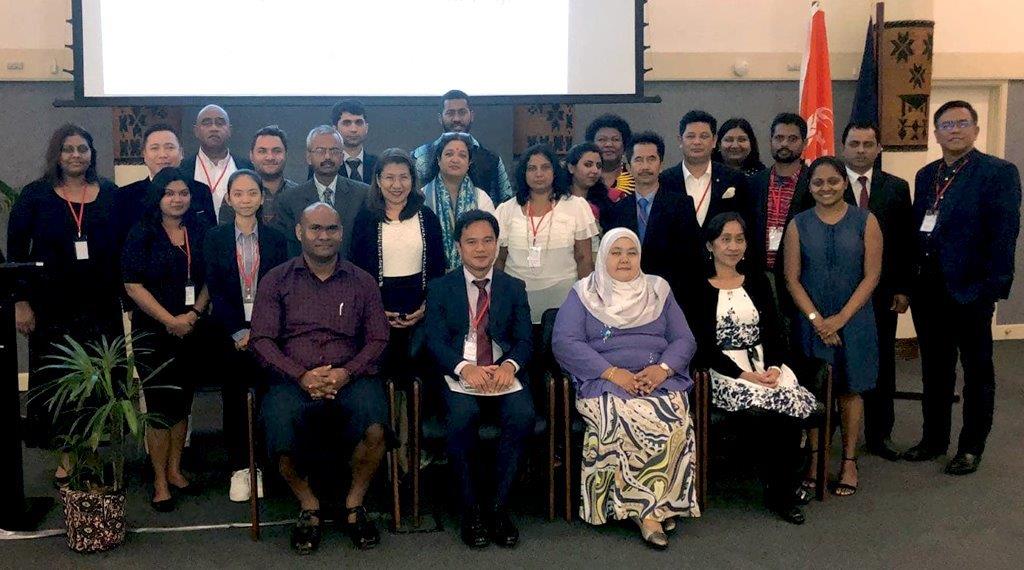
Select Page
Small and medium enterprises (SMEs) are the core engines of productivity and economic growth. They play a dominant role in the economy, particularly in the Asia-Pacific region, through employment generation and value added, contributing significantly to national GDP. However, SMEs face resource challenges and operational issues that need constant monitoring at the organizational level and by the state for better policy interventions to nurture and facilitate their growth.
 As part of its effort to identify and recommend a suitable sectoral-based SME productivity measurement system, including the use of digital platforms, the Asian Productivity Organization (APO) along with the National Training and Productivity Center of Fiji National University conducted a workshop on Productivity Measurement in SMEs from 3 to 7 September 2018 in in Nadi. The workshop reviewed tools, approaches, and techniques used by government agencies and NPOs to measure the productivity of the SME sector.
As part of its effort to identify and recommend a suitable sectoral-based SME productivity measurement system, including the use of digital platforms, the Asian Productivity Organization (APO) along with the National Training and Productivity Center of Fiji National University conducted a workshop on Productivity Measurement in SMEs from 3 to 7 September 2018 in in Nadi. The workshop reviewed tools, approaches, and techniques used by government agencies and NPOs to measure the productivity of the SME sector.
In his keynote address, APO Alternate Director for Fiji and NPO Head Dr. Ismeli Waibuta Tagicakiverata commented, “Productivity and the stimulation of productivity are crucial to the economic future of any country. SMEs, or micro enterprises as they are called in Fiji, play a significant role in national economic development.” He added that technology had enabled massive individual productivity gains with computers, email, social media, and other advances making it possible for workers to produce more in a day than was previously possible in a year.
“A good example of a new technology that has boosted individual productivity is mobile phones because people today have faster access to information and connectivity to others than ever before. This has also enabled SMEs, especially micro-level operators, to reach wider markets in terms of exposure and distribution,” he stated.
SMEs operate in a wide range of sectors, from the production of raw materials to processing, manufacturing, marketing, and providing logistical and transport services, among others. This wide range of business activities makes it difficult to use a common yardstick for measuring, comparing, and monitoring their productivity at national, sectoral, and even at firm levels.
The different approaches to productivity measurement and their calculation and interpretation require careful judgment depending on whether it is measured by statisticians, researchers, or analysts. Furthermore, the issue of data availability dictates what can be measured and analyzed for SMEs at national, sectoral, and firm levels. This was a major focus of the APO workshop. The objective was to develop a productivity report template that can be used for measuring, monitoring, and analyzing the actual productivity of SMEs, enabling effective planning and policy interventions by member countries.
The five-day workshop was attended by 20 participants from 11 APO member countries. It was conducted by Malaysia Productivity Corporation Consultant Mazuin Dahlan, former Development Academy of the Philippines official and freelance consultant Elena Avedillo-Cruz, and Faculty of Business and Economics, University of the South Pacific (Fiji) School of Economics Assistant Lecturer Dr. Janesh Sami. The APO-assigned experts helped review productivity measurement approaches and methodologies applicable to SMEs and shared insights on indicators of SME productivity and how to measure them at the national, sectoral, and organizational levels.
